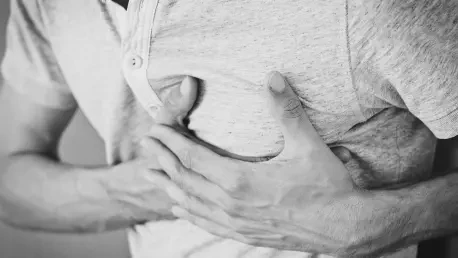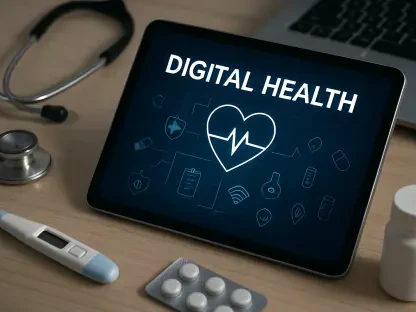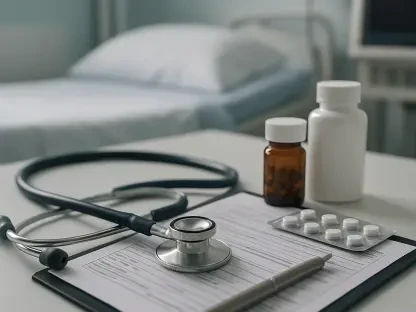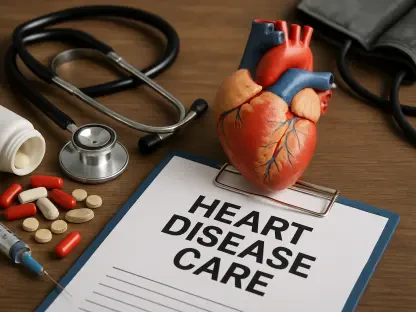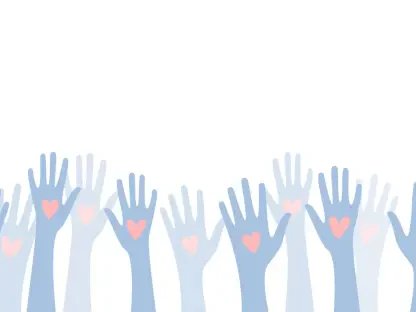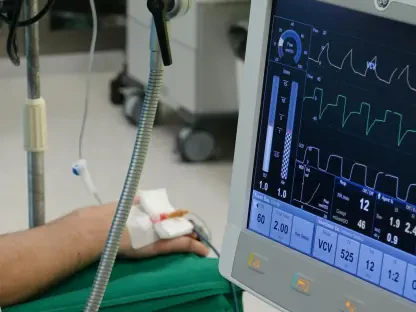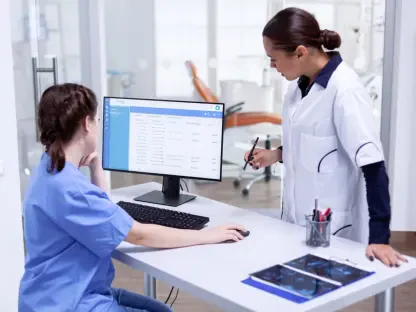In today’s interview, we have the pleasure of speaking with James Maitland, a renowned expert in robotics and IoT applications in medicine. His dedication to using technology for healthcare innovation has had a transformative impact on the field. This interview delves into his insights on leveraging technology to improve healthcare experiences, the challenges within the healthcare system, and his perspective on future developments.
Can you describe the moment you realized something was wrong on Christmas Day at the water park?
Thank you for having me. The moment was quite unexpected. As I was climbing the stairs at the water park with my son, I began to feel winded. Initially, I dismissed it as a consequence of the altitude difference. However, once back at the hotel, my breathing worsened, and I experienced nausea. It was my son’s concerned expression and quick action that eventually led me to realize that something serious was happening.
How did your son react when he noticed you were feeling unwell?
My son was incredibly perceptive and acted with remarkable bravery. Seeing his worry, he quickly jumped into action by calling for an ambulance. His presence was comforting amidst the chaos, and his instinctive response was crucial in getting the timely assistance I needed.
How did you feel when you found out you were having a heart attack?
I was shocked and in disbelief. It’s not the kind of news you’re prepared to hear, especially on a holiday. There was a mix of fear and urgency, coupled with concern over how it might impact my family. It was a sobering realization of just how fragile life can be.
Can you outline the treatment you received at Monument Health?
At Monument Health, the medical team was swift and efficient. After being stabilized, they administered medications and monitored my heart through diagnostic devices. They performed a critical procedure of inserting stents to improve blood flow, which was vital in addressing the heart attack.
How did you initially react when you received the $95,523.73 bill?
Receiving the bill was overwhelming and bewildering. It was an alarming amount, and this financial burden was the last thing anyone would expect after a medical emergency, especially since I am under Medicaid coverage. It seemed impossible to reconcile such a sum.
What steps did you take after receiving the bill to try to resolve the issue?
I initially attempted to handle it by reaching out to Monument Health, explaining my inability to afford the bill. Despite this, the only suggestion was setting up payment plans, which were unfeasible given my situation. I then engaged with my Medicaid provider, who unfortunately was unable to process the bill submitted by me.
Why did Monument Health refuse to bill your Florida Medicaid plan?
Monument Health wasn’t registered with Florida Medicaid for billing out-of-state plans, which presented a bureaucratic hurdle. It was surprising given the emergency nature of the medical service, and their inability to coordinate cross-state billing showcased a serious gap in the system.
Did Monument Health offer you any financial assistance or mention the charity care program when you first contacted them about the bill?
Initially, there was no mention of the charity care program or any form of financial assistance when I reached out. It felt like a missed opportunity for compassion, and it wasn’t until much later that the charity care program became part of the conversation.
How did the hospital respond when you explained that you couldn’t afford the bill?
Despite explaining my financial constraints, the immediate response focused on establishing a payment plan rather than exploring alternatives. The lack of proactive assistance from the hospital was disheartening under the circumstances.
How did it feel when you found out your bill was covered through Monument Health’s charity care program?
Relief washed over me knowing the bill was settled through the charity care program. It was a resolution to a distressing issue, and while grateful, it highlighted how essential it is for hospitals to communicate available financial aid options more transparently.
What changes do you think should be made to prevent situations like yours from happening to others?
Greater coordination across Medicaid plans and improved hospital communication regarding financial assistance options are crucial. We need streamlined processes so patients in emergencies receive care without the looming threat of unpayable bills.
How has this experience affected your trust in the healthcare system, if at all?
It has certainly highlighted vulnerabilities in the system, particularly around cross-state care for Medicaid recipients. Although the medical care was excellent, the financial and administrative hurdles have shaken my confidence in our healthcare infrastructure.
What advice would you give to other Medicaid recipients who find themselves with unexpected medical bills?
Advocacy is key—reach out persistently and explore every avenue, including contacting legal aid organizations. Document everything and don’t hesitate to involve public health groups or journalists who can spotlight these systemic issues.
Were there any signs or symptoms leading up to this event that you might have overlooked?
There might have been subtle signs. I had briefly noticed some fatigue, but nothing that seemed alarming. It’s a stark reminder of the importance of listening to one’s body and not dismissing symptoms without proper assessment.
How important do you think it is for hospitals to coordinate better with out-of-state Medicaid plans?
Extremely important. Without this coordination, patients are left in a precarious position during emergencies. Better systems would ensure seamless care and prevent patients from navigating complex bureaucracy when they should be focusing on recovery.
What role do you believe managed-care companies should play in situations like yours?
Managed-care companies should actively facilitate billing processes and advocate for patients when issues arise. Their involvement can streamline much of the complexities and safeguard vulnerable patients from financial distress.
How did KFF Health News get involved in your case, and what impact did their involvement have?
Their involvement brought visibility and attention to the issue, helping to escalate the response from Monument Health. It underscores the power of media in advocating for patient rights and influencing systemic change.
What was the overall quality of medical care you received at Monument Health, aside from the billing issue?
The medical care was exceptional. The doctors and staff responded promptly and professionally, providing the essential treatment needed in such a critical situation. It’s unfortunate that financial issues overshadowed the medical expertise I experienced.
Why do you think it’s important to share your story with a broader audience?
Sharing such stories can drive awareness and policy change, ensuring others don’t face similar ordeals. It’s a call to action for improving cross-state healthcare logistics and reinforcing the safety net intended by Medicaid.
Looking back, is there anything you would have done differently when handling this situation?
Perhaps seeking immediate legal advice or representation when the bill first arrived might have expedited the resolution process. It’s about being proactive and leveraging all available resources from the start.
What is your forecast for healthcare improvements regarding cross-state Medicaid coordination?
I foresee advancements driven by technology and policy reforms creating more interconnected systems. This can streamline inter-state processes, ensuring patients face fewer hurdles during emergencies. As awareness grows, there’s a push for holistic improvements that prioritize patient welfare.
